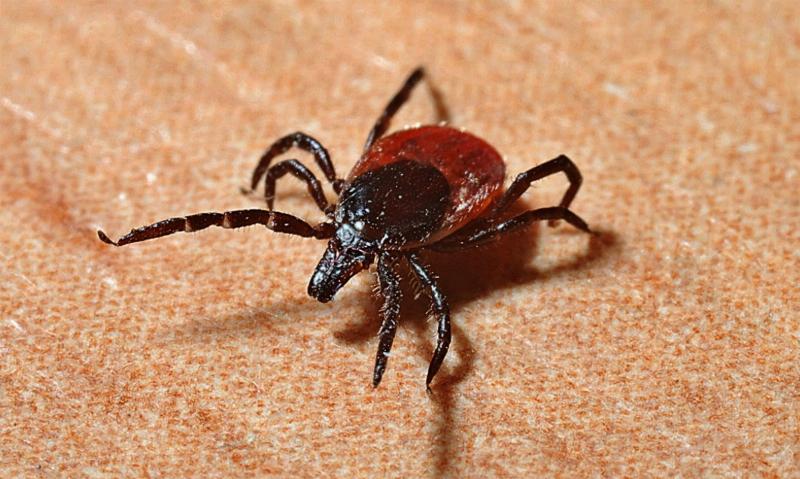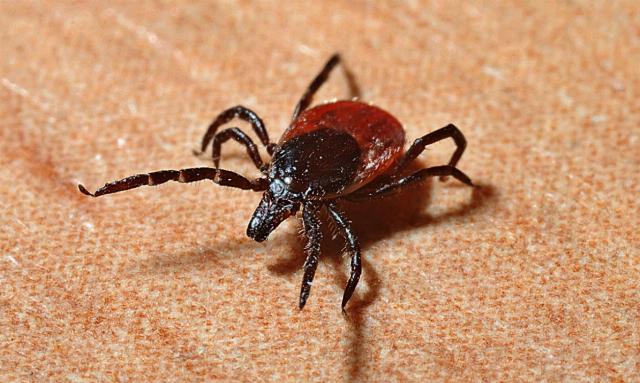


Should the government be able to make you sick — for “your own good”?
Yes, say two Michigan bioethicists, Parker Crutchfield and Blake Hereth. Writing in the July issue of Bioethics, the duo argue that we should genetically modify ticks to spread an intolerance to eating red meat.
This has nothing to do with your health. In fact, the goal is to make you sick. The authors claim that their plan is in service of “public health,” but what they mean is the “health” of the planet. You, dear reader, are collateral damage.
Too many people eat too much beef, they argue. Since not enough people are voluntarily giving up steaks and burgers, Crutchfield and Hereth want to “nudge” them by weaponizing a condition called alpha-gal syndrome (AGS) — a tick-borne allergy that makes eating red meat trigger anything from intestinal distress to nausea to anaphylaxis. The authors downplay the severity: Anaphylaxis is “rare,” they assure us, while other symptoms are merely “uncomfortable.” But the goal is clear: Punish the human body until it complies.
This isn’t public health. It’s public harm — deliberate, engineered, and ideological. Crutchfield and Hereth are environmental ideologues, and their disdain for human autonomy is chilling. In their view, if you won’t stop eating meat for the sake of the planet or the cow, they’ll make you stop for the sake of your stomach.
They don’t bother to argue why eating beef is inherently immoral. They simply decree that red meat consumption is unacceptable, since that is the consensus of the people they respect. And if humans won’t change voluntarily, then they’ll engineer disease to force compliance.
Their rationalizations stumble into absurdity. They admit that forcibly injecting people with AGS would raise “normative concerns.” So instead, they propose a “natural” workaround: genetically enhanced ticks that don’t carry other diseases, survive in broader environments (like cities), and conveniently infect people by accident. It’s not coercion, they say; it’s just bad luck if a tick bites you.
This is not new. Crutchfield previously argued that “moral enhancement” of the population ought to be covert — without public awareness. It's not just dystopian; it's deeply unethical. Under the guise of “bioethics,” these authors promote compulsory moral engineering: You don’t have to know, consent, or agree. You just have to suffer.
Let’s call things what they are: Crutchfield and Hereth are proposing war crimes.
That is not hyperbole. Here’s why:
First, 2025 marks the 80th anniversary of the Nuremberg War Crimes Trials, where German physicians were tried for performing involuntary experiments and euthanasia in the name of “public health.” One of the core principles to emerge from Nuremberg is that no intervention may be made in a person’s body without his knowledge and consent. Crutchfield and Hereth violate that principle outright.
Second, the use of genetically modified organisms (in this case, ticks) to spread disease is a form of bio-chemical warfare. If individuals released disease-spreading insects to harm others, we’d prosecute them as terrorists. The idea that a government or “public institution” might do so in the name of climate or health policy doesn’t make it less criminal — it makes it more dangerous. It also shatters (and rightly so) any public trust in such a “community.”
Third, Crutchfield and Hereth are neo-eugenicists. A century ago, American elites — including the notorious Margaret Sanger — advocated mandatory sterilization to “improve” the genetic stock of the nation. Today’s bioethicists push for the genetic reprogramming of human metabolism to enforce their elite vision of what’s “good for us.”
These are not idle academic musings. In 1920, two German academics, Karl Binding and Alfred Hoche, developed the idea of “lebensunwertes Leben” (“a life unworthy of life”). Within two decades, those “ideas” became official German public policy. What began in lecture halls ended in gas chambers, with six million–plus corpses.
Ideas have consequences. Americans cannot afford to treat this lightly. Crutchfield’s and Hereth’s proposal to weaponize ticks to re-engineer human behavior is not merely immoral; it is tyrannical. It must be condemned for what it is: an assault on human dignity, freedom, and life itself.

Image via Pxhere.
